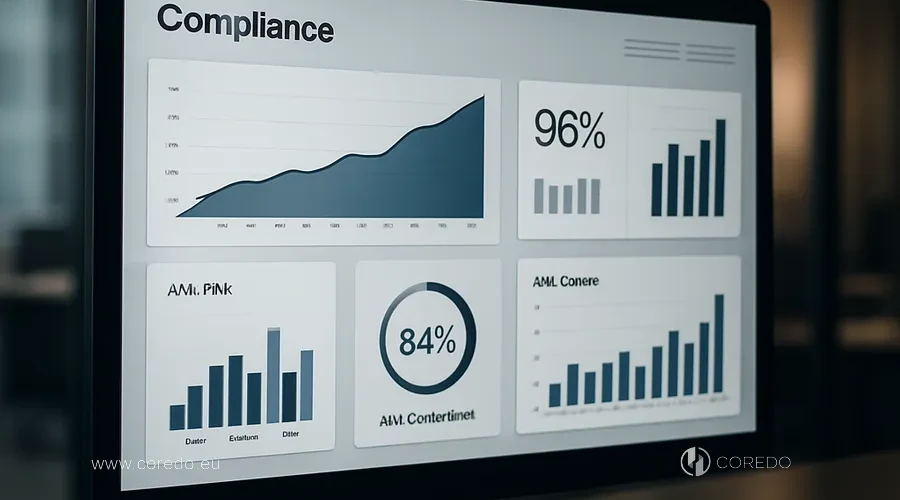Payroll for international companies is not just salary calculation. It is a comprehensive system that helps businesses manage payments, taxes and comply with legal requirements across multiple countries. Let’s examine what payroll in international business is, why it is important and what tasks it solves.
What is payroll in international business
Payroll for international companies is a comprehensive process of calculating, paying and reporting employee wages for staff working in different countries, taking into account local taxes, social contributions, currency fluctuations and requirements for cross-border payments.
Managing payroll in Europe and Asia requires taking into account differences in defining gross/net salary, specifics of remote hiring, as well as localizing payroll processes to the requirements of a particular jurisdiction. For example, in the Czech Republic and Estonia differences in the structure of social contributions and taxation can significantly affect the final cost of hiring and legal risks.
Payroll requirements for an international workforce in 2025
In 2025 the key requirements for payroll for international companies are:
- Accurate calculations and timely payment of salaries to foreign employees, taking into account all tax and social obligations.
- Compliance in international payroll: adherence to EU and Asian regulatory requirements, implementation of international-standard employment contracts, fulfillment of economic presence (substance requirements).
- GDPR and protection of employees’ personal data: mandatory data localization and implementation of electronic reporting systems integrated with ERP systems.
- Documentation: each stage of payroll must be supported by properly executed contracts, Due Diligence of employees and transparent financial monitoring of payments.
The solution developed at COREDO allows integrating these requirements into a single system, minimizing risks and increasing the efficiency of payroll processes.
Salary calculation for foreign employees

Calculating salaries for foreign employees requires accounting for various factors, including the legal norms of the country where activities are conducted, as well as specifics of employing workers from abroad. An important part of this process is familiarization with minimum wage levels in different countries of Europe and Asia to ensure compliance with local requirements and correctly form the terms of employment.
Minimum wage in the EU and Asia by country
In 2025 the minimum wage across EU and Asian countries varies significantly, and the new EU pay standards (EU Pay Transparency Directive) require not only compliance with minimum rates but also transparency of calculations for all employees, including non-residents.
| Country | Minimum wage in 2025 (EUR/month) | Taxation features | Document requirements |
|---|---|---|---|
| Poland | 950 | 20% income tax, social contributions | Contract, reporting |
| Kazakhstan | 250 | 10% income tax, social contributions | Contract, notification |
| Germany | 1 800 | 25% income tax, social contributions | Contract, reporting |
| Singapore | 1 200 | No minimum wage, only taxes | Contract, notification |
Changes in the minimum wage directly affect payroll processes: increases in minimum rates require revising employment contracts, adjusting calculations and updating internal pay policies.
Salary and taxes for non-residents
Calculating wages for non-residents requires taking into account double taxation, specifics of social contributions and currency risks. For example, when managing payroll in Europe and Asia it is important to distinguish between gross/net salary and correctly calculate income tax and contributions depending on the employee’s residency status.
At the same time accounting for currency risks becomes critical in a multi-currency environment – especially when making payments in euros, pounds and Singapore dollars.
Payments to non-residents – documentation
Documentation of payments to non-residents is a mandatory requirement for legalizing employee hiring in the EU and Asia. Each payment must be accompanied by an international-standard employment contract, confirmation of the employee’s due diligence and financial monitoring of payments.
Compliance and AML in payroll of international companies

Compliance and AML play a key role in managing payroll of international companies, ensuring legal requirements are met and preventing financial crimes. Implementing effective compliance and AML procedures allows minimizing risks associated with paying salaries to employees in different jurisdictions and strengthens regulators’ trust.
AML procedures when making payments
salaries
AML procedures when paying salaries are becoming standard for all international companies with a distributed workforce. Payroll AML compliance checks include:
- Identification and verification of beneficial owners.
- financial monitoring of payments, especially for cross-border transfers and intra-group movements.
- Implementation of compliance procedures that allow tracking suspicious transactions and preventing the legalization of income obtained by criminal means.
Cross-border compliance: changes in laws
Cross-border compliance: it is not only about meeting local requirements, but also constant monitoring of legislative changes in the EU and Asia. In 2025 special attention is paid to:
- Criteria of economic presence (substance requirements) to confirm the company’s real activity in the country of registration.
- Conducting regular audits of payroll processes and updating internal payroll policies.
- Compliance with new EU standards on pay and reporting, including electronic reporting systems and payroll integration with ERP systems.
COREDO supports clients at all stages of change, ensuring payroll processes are up to date and transparent.
GDPR and personal data in payroll
GDPR and protection of employees’ personal data: a mandatory requirement for running payroll in Europe and countries that recognize European standards. Implementation of electronic reporting systems, localization of payroll processes and integration with ERP systems make it possible to ensure data protection at all stages, from collection to storage and transfer of information.
Tools for payroll management

Tools for payroll management have become an integral part of effective financial administration for businesses of any size. Thanks to modern solutions, payroll automation significantly reduces time spent on routine operations and lowers the risk of errors, while integration with banking makes payment processes as transparent and convenient as possible for companies.
Payroll automation and banking for business
Payroll automation is a key trend that enables management of a distributed team, minimizes errors and speeds up processes. Integration of payroll systems with international banking and ERP platforms provides:
- Running payroll in a multi-currency environment taking into account exchange rate fluctuations.
- Automatic generation of electronic reports and tax calculations for an international workforce.
- Accounting for currency risks and transparency of cross-border payments.
COREDO implements solutions that allow integrating payroll with banking systems in the EU, the UK, Singapore and Dubai, ensuring compliance with AML and compliance requirements.
Payroll outsourcing: advantages and benefits
Outsourcing payroll services is becoming increasingly popular among international companies seeking to improve payroll process efficiency and reduce costs. Calculating the ROI of implementing payroll outsourcing includes:
- Reducing costs for in-house specialist staff.
- Minimizing the risk of fines and errors.
- Increasing transparency and predictability of payments.
Scaling payroll when entering new markets
Scaling payroll processes is a task that requires taking into account the specifics of intra-group employee transfers, cross-border payments and transfer pricing. COREDO’s solutions allow you to:
- Organize payroll for employees in different EU and Asian countries taking local requirements into account.
- Implement standardized pay policies and automate tax calculations.
- Ensure payroll transparency and manageability even in rapidly growing multi-jurisdictional structures.
Risks and fines for international business

Risks and fines for international business are becoming an increasingly serious factor in the day-to-day operations of companies operating in global markets. Any mistakes or compliance violations, including payroll issues, can lead to significant financial sanctions and legal consequences. Below we look in detail at the risks and fines businesses face when violating payroll calculation and payment rules.
Risks and fines for payroll violations
The main risks for international companies are related to:
- Violations of requirements for paying salaries to foreigners (for example, failure to comply with the minimum wage (MROT), payment delays, calculation errors).
- Insufficient financial monitoring of payments and lack of employee due diligence.
- Non-compliance with AML and GDPR requirements.
Fines can reach up to 10% of the annual payroll fund, and long-term consequences include account freezes, loss of licenses and reputational damage. COREDO’s practice shows that regular audits of payroll processes and the implementation of electronic reporting systems can significantly reduce these risks.
Payroll in a multi-currency environment: currency risks
Running payroll in a multi-currency environment requires constant monitoring of exchange rate fluctuations, consideration of cross-border compliance and compliance with EU standards on pay. COREDO’s solutions provide for:
- Integration of payroll with multi-currency bank accounts.
- Automation of currency risk accounting and adjustment of payments depending on exchange rate changes.
- Implementation of internal pay policies that take into account the specifics of cross-border operations.
How to optimizeWebsite for international companies

- Conduct a comprehensive audit of payroll processes for compliance with EU and Asian requirements.
- Choose a payroll service provider with proven expertise in international compliance and AML.
- Prepare a full package of documents to legalize the hiring of foreigners, including employee due diligence and international-standard employment contracts.
- Implement electronic reporting systems and automation of tax calculations.
- Integrate payroll with banking and ERP systems to increase transparency and efficiency.
- Develop and implement internal company pay policies that take into account EU standards and local regulators’ requirements.
- Provide regular employee training on GDPR and personal data protection.
International SEO for business
- Payroll for international companies: a strategic function requiring integration of legal, financial, and technological solutions.
- Compliance, outsourcing of payroll services, and process automation help minimize risks, increase efficiency, and ensure payment transparency.
- COREDO’s experience in registering legal entities abroad, obtaining financial licenses, AML consulting, and comprehensive business support confirms: only a systematic approach and constant monitoring of legislative changes ensure sustainable development of international business.
- Invest in modern tools, train your team, and choose partners capable of supporting your business at all stages of growth and transformation.
If you are looking for a reliable expert to build an effective payroll system in a multi-jurisdictional structure, the COREDO team is ready to offer solutions proven in practice and in line with the highest international market standards.